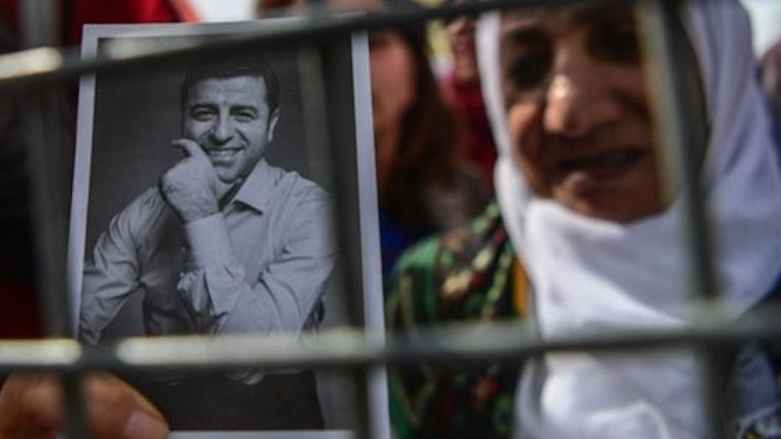Turkey sentences Kurdish leader Demirtas to 56 months for 2013 speech

ERBIL (Kurdistan 24) – A Turkish court handed jailed former Co-leader of the main Kurdish opposition party Selahattin Demirtas four years and eight months in prison in a terror-related trial on Friday for a speech he delivered at a 2013 Newroz (Kurdish New Year) celebration in Istanbul.
He made the speech just two days before the Turkish government and Kurdistan Workers' Party (PKK) announced a now-broken ceasefire and plan of peace negotiations for a political settlement to the decades-long Turkish-Kurdish conflict.
A heavy penal court in Istanbul argued that Demirtas, the former Co-chair of Peoples' Democratic Party (HDP) and a two-time presidential candidate, disseminated propaganda for the outlawed PKK.
At the time, he praised efforts of the then Prime Minister and now President Recep Tayyip Erdogan and PKK's imprisoned founder Abdullah Ocalan to facilitate a political solution for Ankara and the Kurds.
In his defense via teleconference from a super-maximum security prison in Edirne province where Turkey has held him since late 2016, Demirtas said the Erdogan administration was "taking revenge from the peace process."
"I am not taking one step back from what I then said," Demirtas told a judge.
He requested more time to study the indictment against him, which he said he had received only two days earlier, but the court refused and proceeded with his conviction.
In total, prosecutors are asking for up to 142 years imprisonment for Demirtas in different probes, including one involving accusations of insulting Erdogan.
Former HDP MP Sirri Sureyya Onder, instrumental along with Demirtas in holding initially secret peace talks between the PKK and Erdogan, also got a prison sentence of three and a half years for "terrorist propaganda" in a speech.
Demirtas' lawyers made repeated requests for his release before June national elections in which he was a candidate, arguing that to do so would be in the interest of a free and fair democratic process, but he was forced to campaign from prison.
Editing by John J. Catherine
